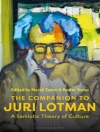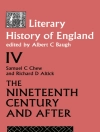The Spaces of Latin American Literature: Tradition, Globalization, and Cultural Production examines how Latin American writers, artists, and intellectuals have negotiated their relationship with Western culture from the colony to the present. De Castro looks at writers and intellectual polemics that serve as markers of the region’s cultural evolution. Among the writers and artists studied are Sor Juana Inés de la Cruz, Rubén Darío, Jorge Luis Borges, Caetano Veloso, and Alberto Fuguet. This book proposes an analysis of the region’s literature rooted in its specific cultural, political, and economic locations.
สารบัญ
Introduction: The Criollo Location of Culture and the Spaces of Latin American Literature * Sor Juana, Lunarejo, The Colonial Literary Space, and Its Limits * Rubén Darío Visits Ricardo Palma: Tradition, Cosmopolitanism, and the Development of an Independent Latin American Literature * The Intellectual Meridian Debate and Colonialist Nostalgia * Jorge Luis Borges and (Western) Tradition * Caetano Veloso: Tropical Truth and Tropical Questions * Reading, Publishing, and Writing Networks: The Hispanophone and Latin American Literary Spaces in the Twenty-First Century * The Movies of My Life, or a Bridge to North America * Epilogue: Latin America Beyond Latin America?
เกี่ยวกับผู้แต่ง
Juan E. De Castro is an associate professor of Literature at Eugene Lang College, The New School for Liberal Arts. He is author of Mestizo Nations: Culture, Race, and Conformity in Latin American Literature (2002).












